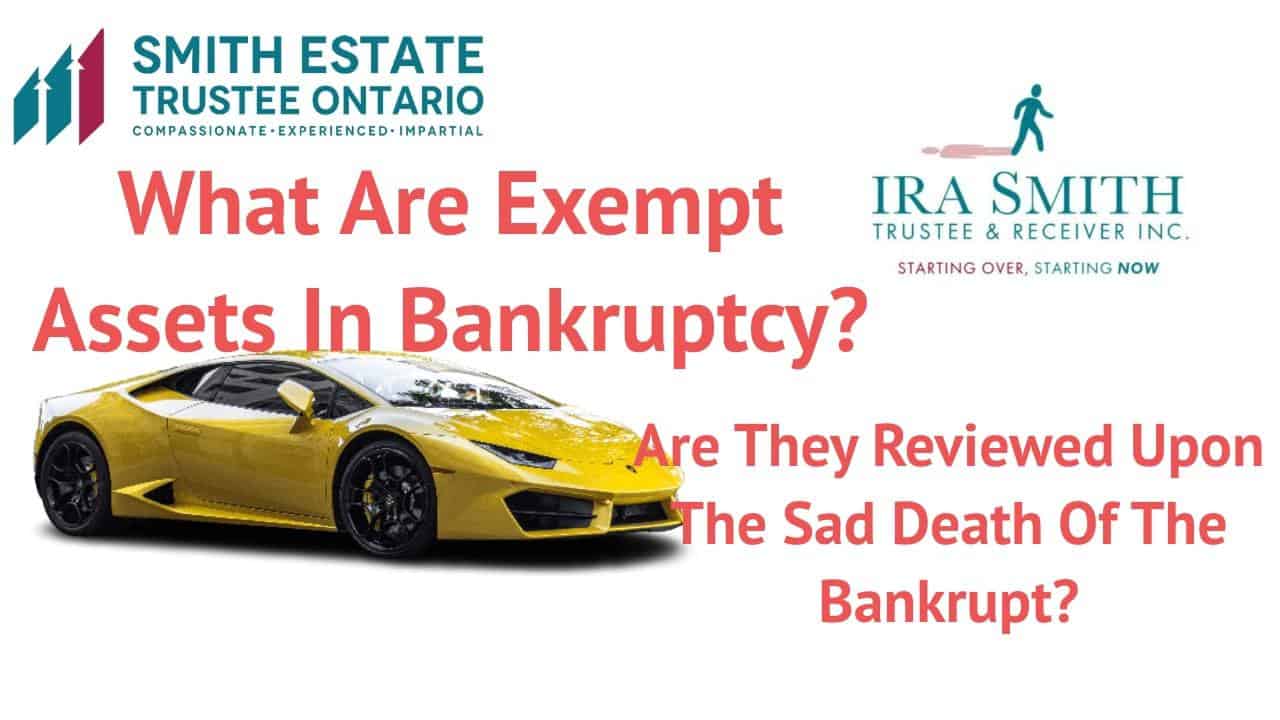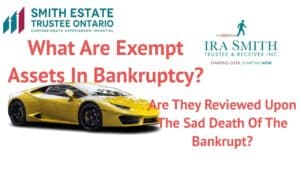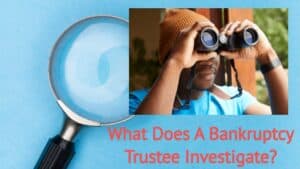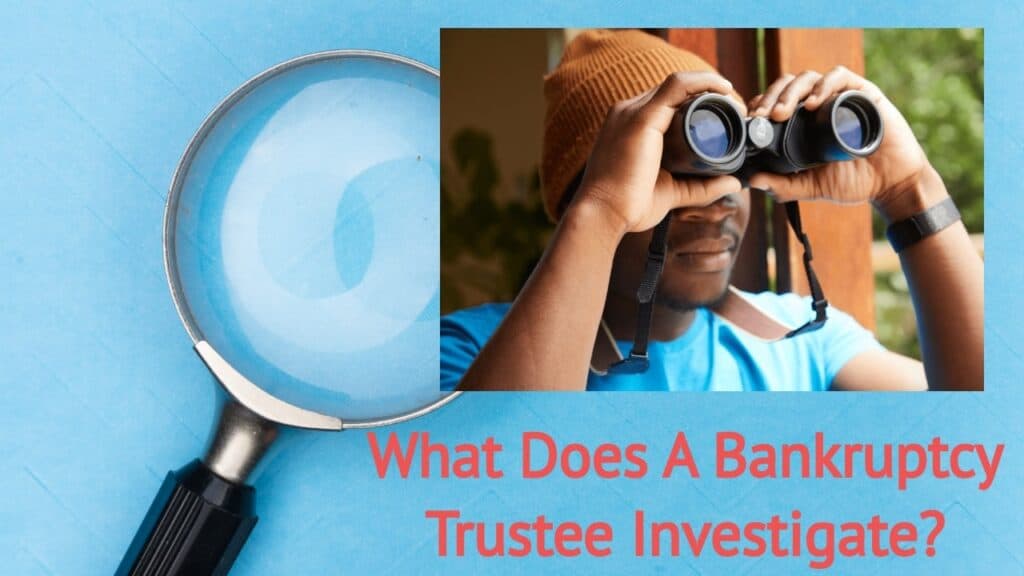
We hope that you and your family are safe, healthy and secure during this COVID-19 pandemic.
Ira Smith Trustee & Receiver Inc. is absolutely operational and Ira, in addition to Brandon Smith, is readily available for a telephone consultation or video meeting.
If you would like to listen to the audio version of this Brandon Blog, please scroll to the very bottom and click play on the podcast.
What are exempt assets in bankruptcy?: Bankruptcy exemptions – how what assets you can keep are determined
An assignment in bankruptcy does not require you to give up all of your assets. In bankruptcy law, there are rules for bankruptcy exemptions. Furthermore, every province/territory has regulations that mandate what assets can be kept and how much equity can be retained. Assets of this type are called exempt assets.
Assets that you are allowed to keep that are not accessible to your creditors are exempt assets in a bankruptcy. There are some that fall under federal law and some that fall under provincial law.
So what are exempt assets in bankruptcy in Ontario? To answer the question, we need to look at two statutes: one federal and one provincial. For federal, we look at the Bankruptcy and Insolvency Act (Canada) (BIA). Section 67(1) of the BIA deals specifically with the bankruptcy exemption issue. It states what property of the bankrupt available to creditors does and does not comprise. Property that is not included is:
- Property held in trust by the bankrupt for any third party.
- Under provincial law, the property cannot be seized.
- Payments to the bankrupt are paid under a program that I will describe as social assistance provided by the federal or provincial government.
- Retirement Savings Plans – The bankrupt’s RRSP or RRIF, except for contributions made in the 12 months before the bankruptcy.
When we discuss the property of a bankrupt, we are referring to the bankrupt’s equity in those assets.
Ontario bankruptcy exemptions: Assets you can keep
As indicated above, one of the asset exemptions in bankruptcy is any property that cannot be seized under provincial law. So what are exempt assets in bankruptcy in Ontario that cannot be seized? For that, we need to go to the Ontario Execution Act. In Ontario, the prescribed amounts for exemptions are:
- Household furnishings and household appliances – $14,180.
- Tools and other personal property used to generate income:
- Exemptions for farmers, being a debtor engaged exclusively in cultivating the soil or farming (and therefore it is that farmer’s principal source of primary income), $31,379 for livestock, fowl, bees, books, tools and implements, and other chattels ordinarily used by the debtor;
- $14,405 for any other case.
- $7,117 for a motor vehicle.
- $10, 783 for a principal residence.
As I have written before, there is an exemption in Ontario for equity in one’s home of not more than $10,783. It is not an exemption for the first $10K, but rather if the total equity is below that amount. Therefore, we can consider the equity in a bankrupt person’s ownership interest in their home to belong to the bankruptcy trustee for all practical purposes.
So this seems pretty straightforward. But what if the bankrupt person dies before the end of the bankruptcy proceedings and the bankruptcy estate administration? A recent decision from the Alberta bankruptcy court, which for reasons I will explain I believe would be instructive for Ontario, answers that question.

What are exempt assets in bankruptcy even in death?
In addition to the above statutory exemptions, since we are always dealing with the bankrupt’s equity in assets, there is another class of assets that form exempt property in a bankruptcy. If any of the bankrupt’s assets are pledged as security to the point where the amount owing to the secured creditor on the secured debt is the same or more than the value of the asset, then a bankruptcy trustee will not attempt to seize it.
So what may have started out as non-exempt property can become property that will not be seized. Two obvious examples are one of the motor vehicles owned by a person worth more than $7,117 that is heavily financed or a principal residence that has mortgages against it that essentially soaks up all the value.
Another type of asset that may be exempt is life insurance policies. If the beneficiary under the policy listed is the spouse, child, parent or grandparent of the deceased, then the funds flow directly to the beneficiary and avoid probate. The bankruptcy of the deceased does not change that.
Although not an asset per se, and only available while the person is living, are wages salary from employment. A bankrupt person is allowed to keep all of their income. However, all Trustees are required to perform an evaluation to see if the bankrupt must contribute by making surplus income payments. The concept of bankruptcy surplus income has been the subject of certain of my prior Brandon Blogs.
Now, what are exempt assets in bankruptcy if the bankrupt person dies before receiving a bankruptcy discharge? On August 3, 2021, the Court of Queen’s Bench of Alberta, Registrar in Bankruptcy L.R. Birkett released Reasons for Decision in Perry (Re), 2021 ABQB 609 (CanLII). In this case, the Trustee sought advice and directions with respect to whether the principal residence exemption continues or is no longer available on the death of the bankrupt. Keep in mind that the principal residence exemption is much different in Alberta than in Ontario. In Alberta, under the Civil Enforcement Act, an Albertan can claim a principal residence exemption up to $40,000.
However, the fact that the issue was over equity in a principal residence is somewhat irrelevant. The real issue is exempt assets in general. So I would frame it as whether any asset exemption continues or is no longer available upon the death of the bankrupt.
Mr. and Mrs. Perry each filed an assignment in bankruptcy on December 19, 2012 (date of bankruptcy) and both remain undischarged bankrupts. At the date of bankruptcy, the bankrupt husband was the only registered owner of the couple’s principal residence. The bankrupt husband died on January 28, 2018.
He did not have any dependents at the time of his death. The bankrupt wife is the only beneficiary under his Will. The widowed bankrupt wife moved from the home and the Trustee sold it.
As a first observation, this is a perfect example of why a bankrupt should not allow the bankruptcy proceedings to drag on. Future events are impossible to predict. Winning a lottery or acquiring an inheritance are the two best reasons to avoid letting the bankruptcy process linger for a very long time. If such a windfall occurs, the bankruptcy trustee administering the bankruptcy estate can claim it.
Types of assets commonly exempt from bankruptcy across Canada: The Registrar’s analysis
The question is does the personal exemption of an undischarged bankrupt remain after his death? In Alberta, the applicable laws under which property is exempt from execution or seizure are set out in the Civil Enforcement Act (CEA) and the Civil Enforcement Regulation(CER). The combined effect of s.88(g) CEA and s 37(1)(e) CER allows an enforcement debtor to claim up to $40,000 of the equity in the debtor’s principal residence as being exempt from execution or seizure. The Registrar noted that the personal exemption is personal to the individual, in this case, the deceased bankrupt husband.
Section 92(1) of the CEA specifically provides that where the enforcement debtor is deceased, the property of the debtor that would be exempt if the debtor were alive remains exempt from writ proceedings against the debtor’s estate for the period of time that the property is required for the maintenance and support of the deceased debtor’s dependents. This allows the dependents of a deceased enforcement debtor the opportunity to access up to $40,000 of exempt equity in the debtor’s principal residence for their needs.
In this case, the widowed bankrupt wife moved out of the house and the Trustee sold it. The exempt equity was no longer necessary for her needs. Therefore the Registrar decided that the deceased bankrupt husband’s exemption was lost on his death. Since the exempt equity was not required to support the bankrupt wife’s needs, the Trustee of the dead bankrupt husband can keep the $40,000 amount as property not covered by the provincial exemption and it is available for the benefit of creditors through the bankruptcy debtor‘s unsecured creditors.
There is a strong argument that if the personal exemption resulted in the bankrupt wife being entitled to her deceased husband’s exemption amount, it would not have been paid to her anyway. Rather, it would have been property available to her Trustee for her unsecured creditors and possibly even a dividend to creditors!

What are exempt assets in bankruptcy and what would happen in Ontario?
What would happen in Ontario with exempt assets (up to their prescribed maximum exempt amount)? Under s.5(1) of the Execution Act, if an execution debtor dies before the seizure and sale of his or her personal property, then whatever personal property the deceased already elected for exemption before death remains valid after death and may not be changed by an executor, administrator or heir of the debtor. s.5(2) of the Execution Act says that If no such election was made prior to death, then, in this order, a surviving spouse, a dependent or a family member has the right to make such an election.
S.5(3) of the Execution Act states:
“(3) The total quantity and total value of personal property of an execution debtor that may be claimed as exempt by a person mentioned in subsection (2) and by the execution debtor before death must not exceed the quantity and value of property that would have been exempt property to just the execution debtor. 2010, c. 16, Sched. 2, s. 3 (9).”
The wording of sections 5(1) and (2) of the Execution Act is very different from that of the relevant Alberta legislation referenced above. So, in my view, it appears that the personal exemption in Ontario would survive and not constitute property available for the Trustee to realize upon, but this is only up to the exemption limit of each class of exempt asset.
However, under a bankruptcy process, along with the bankruptcy protection from unsecured creditors, the bankrupt actually hands over all property to the Trustee. The Trustee either overtly or it is implied, hands back to the bankruptcy debtor any property that is exempt from seizure, either from a provincial statute or because it is a fully encumbered asset because of it being pledged for a secured loan and there is no equity.
In Ontario, since the Execution Act allows for selecting exempt assets after death for the benefit of the deceased Estate, it does not appear to me that bankruptcy would change things for the reasons I have stated. The provincial exemptions, up to their maximum limits, would continue to protect certain property from seizure in bankruptcy.
What are exempt assets in bankruptcy summary
I hope that you found this what are exempt assets in bankruptcy Brandon Blog helpful in describing the personal exemptions in Ontario and whether bankruptcy and death can change that. Problems will arise when you are cash-starved and in debt. There are several insolvency processes available to a person or company with too much debt. You may not need to file for bankruptcy.
If you are concerned because you or your business are dealing with substantial debt challenges, you need debt help and you assume bankruptcy is your only option, call me.
It is not your fault that you remain in this way. You have actually been only shown the old ways to try to deal with financial issues. These old ways do not work anymore.
The Ira Smith Team utilizes new modern-day ways to get you out of your debt difficulties with debt relief options as an alternative to bankruptcy. We can get you the relief you need and so deserve. Our professional advice will create for you a personalized debt-free plan for you or your company during our no-cost initial consultation.
The tension put upon you is big. We know your discomfort factors. We will check out your entire situation and design a new approach that is as unique as you and your problems; financial and emotional. We will take the weight off of your shoulders and blow away the dark cloud hanging over you. We will design a debt settlement strategy for you. We know that we can help you now.
We understand that people with credit cards maxed out and businesses facing financial issues need a realistic lifeline. There is no “one solution fits all” method with the Ira Smith Team. Not everyone has to file bankruptcy in Canada. The majority of our clients never do as we know the alternatives to bankruptcy. We help many people and companies stay clear of filing an assignment in bankruptcy.
That is why we can establish a new restructuring procedure for paying down debt that will be built just for you. It will be as one-of-a-kind as the economic issues and discomfort you are encountering. If any one of these seems familiar to you and you are serious about getting the solution you need to become debt-free, contact the Ira Smith Trustee & Receiver Inc. group today.
Call us now for a no-cost consultation.

We hope that you and your family are safe, healthy and secure during this COVID-19 pandemic.
Ira Smith Trustee & Receiver Inc. is absolutely operational and Ira, in addition to Brandon Smith, is readily available for a telephone consultation or video meeting.
what are exempt assets in bankruptcy


